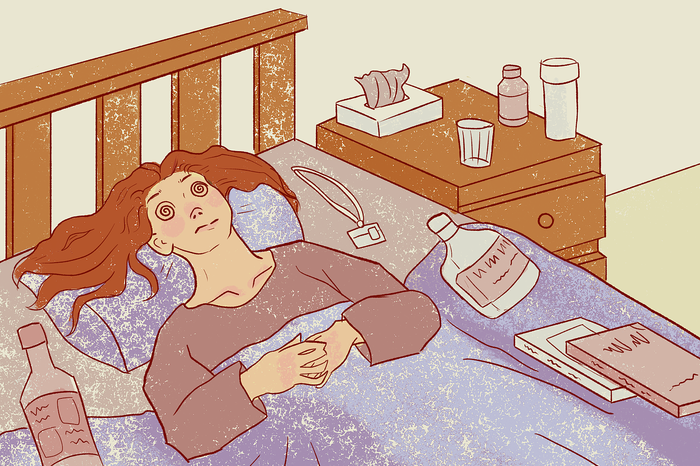Beating the winter blues
Ellie Robinson explains why the changing seasons might have you feeling down, and what you can do to look after yourself

Whilst the encroaching winter months promise cosy outfits, hot chocolates and lovely festive lights in the town centre, for many of us, the darker, shorter days also threaten lethargy and lower moods. What is it about the changing seasons that causes such a noticeable difference in our moods year on year?
"The limited natural light in winter months disrupts the function of the hypothalamus, the region of the brain that controls our sleep, mood and appetite"
The ‘winter blues’, or ‘Seasonal Affective Disorder’ (SAD) as it is referred to at the extreme end, is our brain’s response to a lack of sunlight. The limited natural light in winter months disrupts the function of the hypothalamus, the region of the brain that controls our sleep, mood and appetite. Our body’s circadian rhythm, or ‘body clock’, relies on light cues to tell us when we should be awake or asleep. When the days get shorter and the mornings darker, the hypothalamus produces greater amounts of melatonin, the hormone that controls sleep, making us feel more tired. Reduced exposure to sunlight also causes the hypothalamus to produce lower levels of the neurotransmitter serotonin, which not only causes feelings of depression but also compounds feelings of tiredness by reducing our sleep quality.
"Decreased exposure to sunlight has been shown to correlate with deficiencies in intellectual function, specifically memory and the ability to sustain attention."
It is thought that SAD is rooted in evolutionary processes designed to help us survive through the colder months, where food was scarcer and our bodies had to expend more energy keeping warm. This explains why there are more instances of SAD in northern regions such as Scandinavia and Alaska, where seasonal fluctuations are more extreme, winters lasting for longer and resulting in fewer daylight hours. SAD is physiologically similar to mammalian hibernation in a number of ways, notably increasing tiredness and causing a reduction in heart rate. Sufferers also typically gain weight, often experiencing increased cravings for carbohydrate-rich foods, so as to build up stores of slow-release energy. Further to this, seasonal depression confers a genetic advantage in temperate latitudes; decreased libido in winter months increases the chance of babies being born in late winter–early summer, where they would have been more likely to survive. One study also suggested that feelings of depression may have improved pair-bonding and care within family units through the winter.
Decreased exposure to sunlight has been shown to correlate with deficiencies in intellectual function, specifically memory and the ability to sustain attention. This is likely to be a further product of increased depression and tiredness rather than a separate effect, but is nonetheless an unwelcome outcome, particularly as we navigate the unforgiving Cambridge workload.
So, what can we do about it? Luckily, there are simple ways we can mitigate the effects of ‘winter blues’. Since SAD has been shown to be related to daylight levels and photoperiods, we can help combat it through exposing ourselves to light in these dark mornings. Experiencing light soon after we wake up prompts our bodies to release more serotonin, and also helps to reset our circadian rhythms. Whether you do this through investing in a lightbox that simulates daylight, or trying to fit in a quick morning walk when you get up, this has been shown to make a tangible impact on mental wellbeing. It is also important to keep to a regular sleep schedule so as to keep a stable body clock. Finally, if you do find yourself feeling the effects of seasonal depression, don’t hesitate to seek out welfare support. Prioritise time with friends, exercise, do whatever makes you feel better. Cambridge may feel all-consuming, but your mental health comes first.
 News / CUP announces funding scheme for under-represented academics19 December 2025
News / CUP announces funding scheme for under-represented academics19 December 2025 News / SU reluctantly registers controversial women’s soc18 December 2025
News / SU reluctantly registers controversial women’s soc18 December 2025 News / Cambridge welcomes UK rejoining the Erasmus scheme20 December 2025
News / Cambridge welcomes UK rejoining the Erasmus scheme20 December 2025 Features / Should I stay or should I go? Cambridge students and alumni reflect on how their memories stay with them15 December 2025
Features / Should I stay or should I go? Cambridge students and alumni reflect on how their memories stay with them15 December 2025 Film & TV / Timothée Chalamet and the era-fication of film marketing21 December 2025
Film & TV / Timothée Chalamet and the era-fication of film marketing21 December 2025










